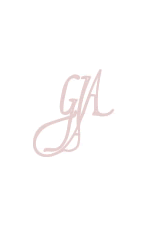- |
User Links
The King Shall Come When Morning Dawns
Hymn Information
- First Line
- The King shall come when morning dawns
- Translator
- John Brownlie (1907, alt.)
- Text Source
- Greek
- Tune Name
- MORNING SONG
- Harmonizer
- Jack Grotenhuis (1983)
- Tune Source
- J. Wyeth's <cite>Repository of Sacred Music</cite>, 1813
- Topic
- Church Year: Christ the King · Jesus Christ: King · Jesus Christ: Second Coming
Copyright Information
- Text Copyright
- Public Domain
- Tune Copyright
- Harm. © 1987 Faith Alive Christian Resources
- Reprint/Projection Information
- Words: The Words are in the Public Domain; you do not need permission to project or reprint the Words.
- Music: Permitted with a license from CCLI.com or from OneLicense.net. If you do not own one of these licenses, please contact the copyright holder for permission.
Full Text
Scripture References
Further Reflections on Scripture References
Infused with the imagery of morning light typical of early Greek hymnody, this Advent text stirs hope in the hearts of all who look forward to the return of Christ. “The King Shall Come” is a confession of faith in the sure return of our Lord; his coming again will occur in a blaze of glory, which will far surpass his earthly death and resurrection. The text concludes with a paraphrase of the ancient prayer of the church-"Maranatha," or "Lord, come quickly" (Rev. 22:20).
Psalter Hymnal Handbook
Confessions and Statements of Faith References
Further Reflections on Confessions and Statements of Faith References
Heidelberg Catechism, Lord’s Day 12, Question and Answer 31 is a reminder that Christ promised to return and will do so as King. He has ascended to heaven “to show there that he is the head of his church, the one through whom the Father rules all things.” He was anointed as “our eternal king who governs us by his Word and Spirit, and who guards us and keeps us in the freedom he has won for us.”
The King Shall Come When Morning Dawns
Tune Information
- Name
- MORNING SONG
- Key
- f minor
- Meter
- 8.6.8.6


 My Starred Hymns
My Starred Hymns






